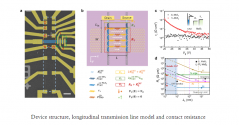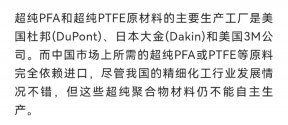China's semiconductor materials are on the fast track
Still a lot of room for improvement and a lot of business opportunities.
Wafers:
In the case of international trade restrictions, in order to meet the needs of the local market, silicon wafer manufacturers in mainland China, especially leading companies, such as Shanghai Silicon Industry, Zhonghuan, Leon Micro, Shengong, etc., are expanding production capacity.
In January 2021, the Shanghai Silicon Industry disclosed a fixed increase plan, planning to raise 5 billion yuan, and the second phase of the big fund will subscribe 1.5 billion yuan to invest in 12-inch silicon wafer research and development and advanced manufacturing projects, and 12-inch high-end silicon-based material research and development pilot projects , The new production capacity can reach 300,000 pieces/month. After the project is implemented, the total production capacity of 12-inch silicon wafers will reach 600,000 pieces per month.
In March 2022, Leon Micro spent 1.5 billion yuan to acquire a 58.69% stake in Guojing Semiconductor to strengthen its market position in lightly doped 12-inch silicon wafers for storage and logic chips. Guojing Semiconductor has completed the infrastructure construction with a monthly production capacity of 400,000 pieces, and the fully automated production line has been completed.
The first phase of the monthly production capacity of 150,000 pieces will be completed in the second half of 2023. In addition to 12-inch silicon wafers, Leon Micro's 6-inch silicon wafer business for power devices is also expanding, with a target monthly production of 60,000 pieces, and the monthly production capacity of power devices will increase from the original 175,000 pieces to 235,000 pieces. These products are mainly positioned in the two application directions of automotive electronics and photovoltaic control chips.
-Photoresist:
Chinese mainland photoresist companies mainly include Nanda Optoelectronics, Jingrui Electric Materials, Tongcheng New Materials, Shanghai Xinyang, etc. Due to the late start of my country's semiconductor photoresist industry, the current market share is low.
For Chinese manufacturers, the KrF photoresist of Red Avenue New Materials has been supplied in batches to customers such as SMIC , Huahong Hongli, Wuhan Xinxin, and China Resources Shanghua, including 12-inch and 8-inch production lines. The engraving-related supporting reagent project will be completed and put into production in the second half of 2022.
-Electronic grade gasses:
At present, China's domestic special gas products are mainly concentrated in the low-end market. In the high-end special gas market where integrated circuit manufacturing is more widely used, local companies have shortcomings such as incomplete product categories and low purity. Domestically produced electronic special gases are mainly concentrated in cleaning and For low-precision application links such as partial etching, high-precision doping, deposition, etching, and photolithography links mainly rely on imports.
Specialty gases are dangerous chemicals that have high requirements for packaging and transportation. Once a leak occurs, serious consequences will occur. Therefore, there are many inconveniences in importing special gases. The transportation and after-sales service of domestic special gas is convenient, and the price is much lower than that of foreign products. In addition, domestic products do not have the problem of "stuck neck" and have good development prospects
-Wet Electronic Chemicals:
In recent years, Chinese local enterprises have actively explored the market of high-end wet electronic chemicals. Leading manufacturers already have the ability to produce G4 and G5 standard products. Combined with localization advantages in transportation, price and after-sales, the future development space is broad, especially is in the high end market.
CMP:
The degree of dispersion in the polishing fluid market is relatively high, and the trend of diversified development is good for related local companies in China. At present, Anji Microelectronics has achieved a certain degree of domestic substitution.
Since CMP polishing pads and polishing liquids have a great impact on chip yield, but the cost ratio is relatively low, in mature fabs, in order to ensure chip yield, the original supplier is rarely replaced. Therefore, for latecomers, the certification threshold is high and the certification cycle is long. At present, benefiting from the safe and controllable environment of the semiconductor industry chain, the certification speed of local CMP polishing pad and polishing liquid enterprises in China has been accelerated a lot, and the verification cycle has been shortened to about half a year.
-Evaportation, Sputtering targets:
In recent years, China's local leading enterprises have grown rapidly, and Jiangfeng Electronics, Youyan New Materials, Ashichuang, Longhua Technology, etc. have all opened up a space.


